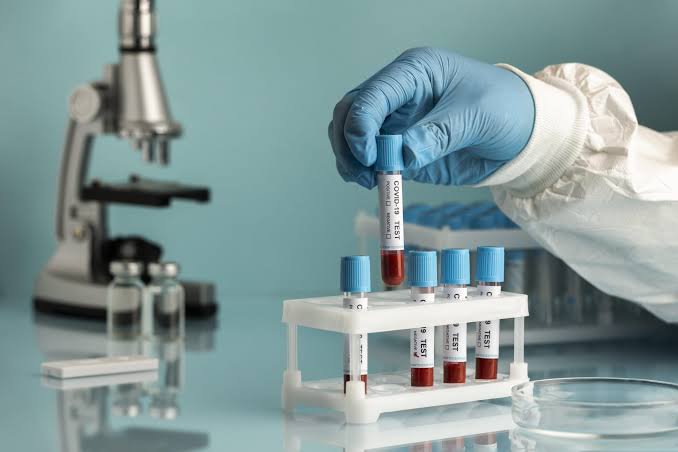In the quiet corners of Enugu State, Nigeria, a tale of profound emotional upheaval and life-altering consequences has unfolded—a narrative marked by the intersecting forces of medical diagnostics, cultural expectations, and personal resilience.
This feature story delves into the lives of those who have grappled with the ramifications of medical errors, highlighting the need for accuracy and the broader societal impact of such mistakes.
For Kevin Abonyi, a devout Catholic and graduate of Mass Communication from the University of Nigeria, Nsukka, the journey towards marriage was marked by an unexpected and devastating turn. With plans to settle down, Abonyi underwent a routine medical test in Obollo Afor, a town in Udenu Local Government Area of Enugu State. The test results came back with a shocking diagnosis: HIV positive.

In an instant, Abonyi’s world collapsed. The diagnosis was both unexpected and confounding for a man who had lived a life of moral uprightness and stringent adherence to his faith. Faced with the weight of a potential marriage shattered by this result, Abonyi, though initially overcome with shock, exhibited remarkable composure. He approached his fiancée with the disheartening news, promising to seek a second opinion.
A trip to Lagos revealed a glimmer of hope. Subsequent tests returned negative results, starkly contrasting with the initial diagnosis. Elated yet cautious, Abonyi and his fiancée pursued further examinations at Bishop Shanahan Hospital and the University of Nigeria Teaching Hospital (UNTH), both affirming the HIV-negative status. This series of events not only salvaged his relationship but also underscored the critical nature of accurate medical testing.
Abonyi’s wife reflects on the emotional turbulence of those days, emphasizing the role of faith and perseverance. “When he told me about the initial result, I was devastated,” she shares. “But I chose to believe in him and in God’s plan. The correct results later confirmed our hope.”
In stark contrast to Abonyi’s story of triumph, the tale of George, a 42-year-old father of three from Enugu State, ends in tragedy. George’s medical journey began with a diagnosis of ulcer, a condition he treated persistently. However, his deteriorating health led to a crucial revelation at a specialist hospital: he was suffering from Hepatitis B, a condition that had severely compromised his liver.
Despite the best efforts of medical professionals, George succumbed to the disease, leaving behind a grieving family. His younger brother’s account underscores a painful reality: George’s death was a direct result of a misdiagnosis. This case illustrates the potentially fatal consequences of diagnostic errors, emphasizing the need for accurate and thorough medical evaluations.
In another poignant example, Mr. and Mrs. James Kayode’s pre-marital tests indicated both partners were AA, suggesting a low risk of sickle cell anemia in their future children. However, their first child was diagnosed with sickle cell anemia, revealing that both parents were actually AS, contrary to their initial test results. This revelation threw the Kayode family into a medical and emotional crisis, disrupting their lives and revealing the critical importance of accurate genotype testing.
In Nigeria, and particularly among the Igbo ethnic group, cultural pressures regarding the birth of male children significantly impact familial and societal dynamics. The cultural preference for male offspring often places immense stress on women to produce male heirs. This cultural expectation can lead to marital strife and personal anguish, as seen in the experiences of Mrs. Chioma Ezeadi and Mrs. Gloria Ibe.
Mrs. Ezeadi, worried about her husband’s preference for a male firstborn, kept the doctor’s prediction of a female child a secret. To her relief and surprise, she gave birth to a boy, illustrating how medical predictions and cultural expectations intersect in complex ways.
Conversely, Mrs. Gloria Ibe’s experience with incorrect sex prediction—both from medical scans and prophetic pronouncements—demonstrates the profound emotional impact of such errors. After preparing for a girl and receiving a boy instead, she faced not only personal disappointment but also the loss of her husband before the child’s birth.
A Closer Look at Diagnostic Errors
The prevalence of diagnostic errors highlights a critical issue within the medical field. According to Abuchi Kingsley, a Medical Laboratory Scientist in Lagos, errors can stem from multiple sources: personnel incompetence, faulty equipment, inadequate reagents, and improper sample collection. Kingsley stresses the importance of quality control and proper training to mitigate these errors.
Dr. Chikodi Onyemkpa, a gynaecologist, adds that ultrasound scans, while invaluable, are not immune to error. Misinterpretations and limitations of technology can lead to incorrect sex predictions, reflecting broader challenges in diagnostic accuracy.
The stories of Abonyi, George, the Kayodes, and others underscore a broader need for systemic improvements in medical diagnostics. Ensuring accuracy in lab tests and medical imaging requires investment in quality control, advanced technology, and continuous professional training. Additionally, addressing the cultural factors that influence medical practices and patient expectations is crucial in mitigating the emotional and societal impacts of diagnostic errors.